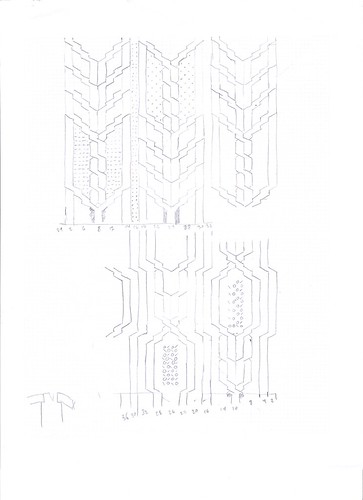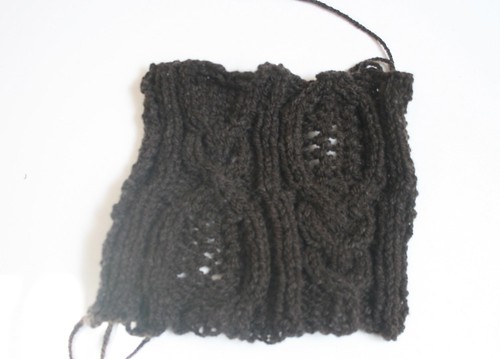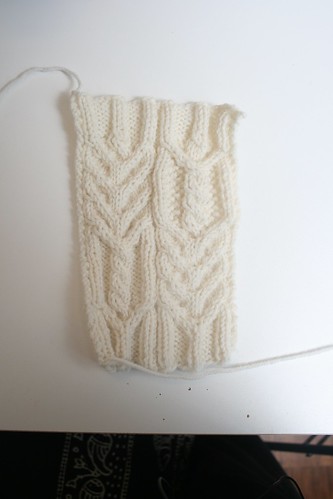Kathy showed off some of her sweaters, which was a class unto itself on proper finishing techniques. She introduced cabling charting, which I already love, and got us started customizing charts. I was inspired by a couple of her cables and immediately started sketching freehand, then translated into this:
Then we spent the rest of the class swatching our designs. I knit the bottom chart of of handspun three-ply from Frank the sheep
and the top one out of white worsted Plymouth Yarn Encore, which shows off cables nicely.
We also sketched out a plan for an entire sweater based on the brown sample! I don't know yet if that's what I'll make from that yarn when I'm done spinning it, but possibly. I'll need to check how much yardage I have when I'm done.



